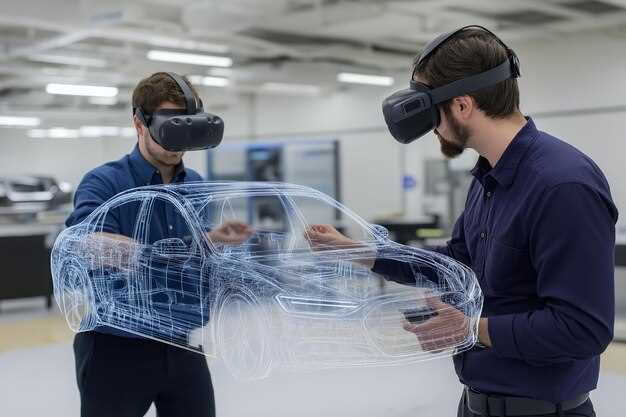
The automotive industry is undergoing a seismic shift, with Chinese automakers leading the charge in innovation. In recent years, companies such as BYD, NIO, and Geely have redefined what it means to be a player in the global market. Their rapid advancements in technology and unique approaches to vehicle manufacturing have set new benchmarks, eclipsing traditional Western automotive giants.
At the core of this transformation is the Chinese emphasis on integrating cutting-edge technologies into their vehicles. From electric mobility solutions to autonomous driving features, innovation is the lifeblood of these manufacturers. Chinese automakers are not merely adopting trends; they are creating them, leveraging vast resources and a receptive domestic market to experiment and implement groundbreaking technologies at an unprecedented pace.
As Western automotive companies grapple with bureaucratic constraints and legacy systems, the agility of Chinese firms allows them to respond swiftly to changing consumer demands and technological advancements. This dynamic not only enhances their competitiveness but also shifts the global landscape, challenging established paradigms and prompting a reevaluation of strategies among their Western counterparts.
Examining Rapid Advances in Electric Vehicle Technology
The landscape of electric vehicle (EV) technology has undergone remarkable transformation in recent years, particularly driven by the rapid advancements from Chinese automakers. These manufacturers have demonstrated a unique ability to integrate cutting-edge tech solutions, positioning themselves at the forefront of innovation in the automotive sector.
One notable area of progress is battery technology. Chinese companies have invested heavily in research and development of lithium-ion batteries, focusing on enhancing energy density and reducing charging times. The emphasis on solid-state batteries further signifies a leap toward safer and more efficient energy storage systems, potentially revolutionizing the driving range of EVs.
Chinese automakers are also embracing artificial intelligence and machine learning to optimize vehicle performance and enhance user experience. From autonomous driving capabilities to smart connectivity features, innovation is not only about electric powertrains, but also about creating a comprehensive tech ecosystem that caters to modern consumers’ needs.
The collaboration between automakers and technology firms has reinforced China’s status as a global leader in EV innovation. Partnerships with software developers and electronics manufacturers enable the rapid integration of new features and functionalities, significantly shortening the time from concept to market.
Moreover, the government policies in China favor the growth of the electric vehicle market through subsidies and support for infrastructure development, allowing local companies to scale operations rapidly. This supportive environment is conducive to fostering a culture of innovation that challenges the traditional approaches adopted by Western automakers.
As Chinese automakers continue to outpace their Western counterparts in EV technology, the competition is likely to push the boundaries of what is possible, resulting in a future where electric vehicles are not just an alternative to traditional cars but a preferred choice among consumers worldwide.
Comparative Analysis of R&D Investment Between Chinese and Western Firms

The realm of automotive innovation has witnessed a seismic shift in recent years, particularly regarding the research and development (R&D) investments of Chinese and Western firms. Chinese automakers have increasingly allocated substantial resources to tech innovation, often surpassing their Western counterparts in terms of scale and speed of execution.
In 2022, Chinese companies collectively invested approximately $25 billion in R&D, reflecting a year-on-year increase of 15%. Major players like BYD and NIO have emerged as front-runners, pushing boundaries in electric vehicle technologies and battery advancements. In contrast, traditional Western automakers, while still investing heavily, have seen their R&D budgets grow at a slower pace, with general figures hovering around $18 billion in the same year. This discrepancy highlights a strategic divergence in how these firms approach innovation.
Chinese firms tend to adopt a more agile and iterative approach to R&D. They often leverage government support and favorable policies that encourage innovation. This has led to rapid prototyping and quicker time-to-market for new tech solutions. Conversely, Western firms, burdened by legacy systems and stringent regulatory frameworks, typically pursue a more conservative strategy. Their R&D investments are often spread across a broader spectrum of technological advancements, which can dilute their focus on groundbreaking innovations.
The disparity in investment strategies also extends to collaboration dynamics. Chinese companies increasingly partner with tech startups and academic institutions to facilitate knowledge transfer and accelerate innovation. This trend contrasts with Western firms, which frequently rely on internal capabilities or established partnerships that may not always prioritize cutting-edge tech development.
As the global automotive landscape continues to evolve, the Chinese focus on robust R&D investments and rapid tech advancements signals a potential shift in market leadership. The sustained commitment to innovation places Chinese automakers in a favorable position to redefine industry standards, challenging the traditional dominance of Western firms.
Strategies Employed by Chinese Companies to Accelerate Automotive Innovation

Chinese automakers leverage several strategies to foster innovation within the automotive sector. One of the primary approaches is significant investment in research and development (R&D). Companies such as BYD and NIO allocate substantial portions of their budgets to R&D, focusing on cutting-edge technologies including electric vehicles (EVs) and autonomous driving systems.
Collaboration with technology firms is another pivotal strategy. Chinese car manufacturers often partner with tech giants like Alibaba and Tencent to integrate advanced software and connectivity features into their vehicles. These collaborations facilitate rapid progression in areas such as artificial intelligence and big data analysis, enhancing overall vehicle performance and user experience.
Additionally, Chinese companies adopt a customer-centric approach to innovation. They actively gather consumer feedback and insights, which inform the development of new features and enhancements. This responsiveness ensures that products meet the evolving demands of the market, fostering loyalty and boosting sales.
Furthermore, the Chinese government plays a crucial role by providing incentives and subsidies for electric vehicle production. These policies encourage automakers to accelerate their innovation processes while reducing the financial risks associated with new technology development.
Lastly, embracing agile manufacturing techniques allows Chinese automakers to streamline their production processes. This flexibility enables faster rollouts of new models and updates, ensuring that companies remain competitive in the rapidly changing automotive landscape.


